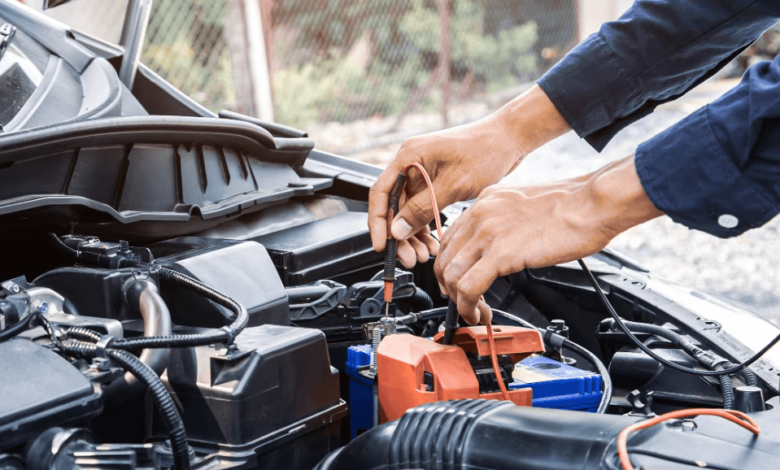How to Spot Electrical Problems in Your Vehicle Before They Get Worse

Most vehicle owners are familiar with routine maintenance — oil changes, tyre rotations, brake checks. But electrical issues? Those are the silent troublemakers. They often start small: a flickering light, a slow crank, or a dashboard warning that briefly blinks, then disappears. Ignore them, and you could be looking at a vehicle that won’t start, a failed alternator, or worse — a costly tow on a busy day. That’s why many drivers turn to a mobile auto electrician Sydney locals trust to catch issues before they spiral.
Unlike mechanical problems that tend to make themselves known with grinding or knocking noises, electrical faults can lurk under the surface for weeks. A faulty wire, a weak battery connection, or a malfunctioning sensor might not disable your vehicle — at first. But left unresolved, these seemingly minor issues can drain your battery, disrupt onboard systems, and cause cascading damage over time.
The good news is that modern cars are smart — and they’re often trying to tell you when something’s wrong. The key is knowing how to listen.
Subtle Signs You Shouldn’t Ignore
Some electrical issues are obvious. Others are sneaky. Here are a few early warning signs that suggest it’s time to dig deeper:
- Flickering or dimming headlights: Often caused by a struggling alternator or corroded battery terminals.
- Random warning lights: If your dash lights are flashing on and off, especially intermittently, it could be a short or faulty sensor.
- Clicking sounds when turning the key: This is usually a battery or starter issue, both of which are electrical.
- Inconsistent power windows or locks: If your switches are unresponsive or only work sometimes, wiring could be to blame.
- Strange smells: A burning plastic or electrical smell is a red flag. Turn off the engine and investigate immediately.
See also: Available Hotline for Business Help: 192.168.25.1.8090
Common Culprits Behind Electrical Issues
Modern vehicles rely on a complex electrical network that powers everything from ignition to entertainment systems. Some of the most common sources of trouble include:
- Battery degradation: Batteries naturally lose charge-holding capacity over time. A weak battery can mimic or mask other issues.
- Loose or corroded connections: A simple connection issue can cause erratic behaviour across multiple systems.
- Wiring wear and tear: Rodents, moisture, or even heat can damage wiring insulation, leading to shorts or open circuits.
- Failing alternator: The alternator keeps your battery charged and powers your vehicle’s electronics. When it starts to go, everything else suffers.
- Blown fuses or relays: These are designed to fail to protect more expensive components, but too many blown fuses may point to a bigger issue.
How to Test Before It Breaks
If you’re even moderately handy, there are a few things you can do yourself:
- Check battery terminals: Are they clean and tight? Corrosion can cause poor connections and charging issues.
- Use a multimeter: This can help you quickly test battery voltage (12.6V is healthy for most cars when off).
- Wiggle test: Gently move wiring near switches and relays. If something reacts (like a light flickering), you’ve found a loose connection.
- Inspect fuse box: Look for blown fuses, which can be an early indicator of deeper problems.
Still unsure? Don’t guess. A professional diagnostic scan tool can read your vehicle’s onboard computer and pinpoint faults in minutes.
When to Call a Professional
DIY is great until it’s not. If you’ve ruled out simple fixes but the problem persists — or worsens — it’s time to get expert help. Electrical systems in modern vehicles are intricate and highly sensitive. One wrong move can cause more harm than good.
A qualified auto electrician doesn’t just replace parts — they trace problems to the source. This means faster repairs, fewer guesswork parts swaps, and better long-term results. And if convenience matters, consider finding a mobile specialist who can come to you — whether you’re at home, work, or stuck in a car park.
Prevention Is Always Cheaper Than Repair
Many electrical failures happen slowly. By the time your car won’t start or a critical system fails, you’ve missed the early warnings. Instead of waiting for a breakdown, make electrical inspections part of your regular vehicle checkup. Especially before long drives or harsh weather changes, a 10-minute look under the hood can save you hours of stress later.
Trust Your Gut
You know your car better than anyone. If something feels off — even if you can’t explain it — it’s worth investigating. Strange noises, weird behaviour, or just a sense that something’s wrong could be your vehicle’s way of asking for attention.
Electrical systems may be hidden behind dashboards and under the hood, but they’re the lifeblood of modern vehicles. Stay ahead of small issues, and you’ll avoid bigger ones down the road.





